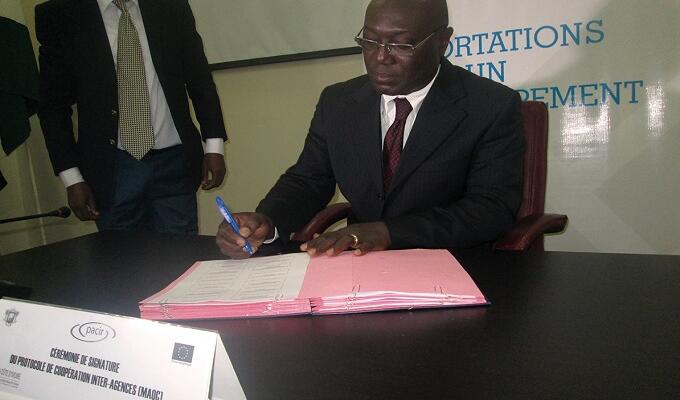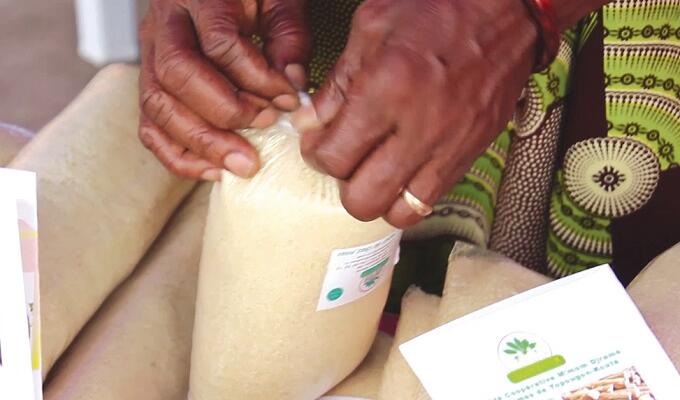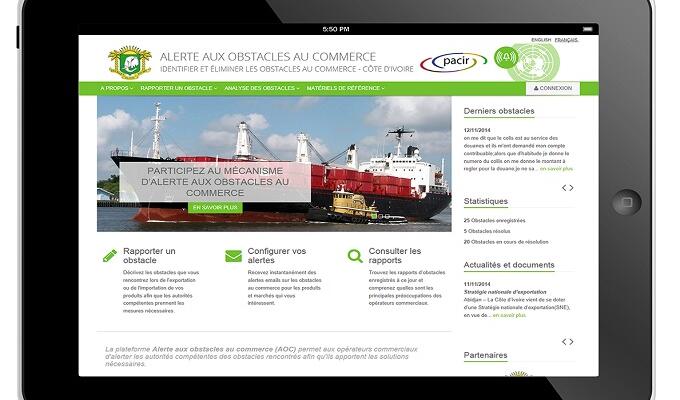



Trade Obstacles Alert mechanism addresses non-tariff measures (en)
Assahouré N’Goran used to wait six months to get the weight certificate required to export cocoa beans from Côte d’Ivoire to Belgium. Since June, his waiting time has dropped to just two weeks.
‘Having the certificates issued quickly makes a huge difference for us,’ said N’Goran, shipping manager of Outspan Ivoire, a subsidiary of agribusiness giant Olam International. ‘It increases our competitiveness and will lead to higher exports. What is good for our company is good for employment and the growth of Côte d’Ivoire.’
Most such non-tariff measures (NTMs) are easy to solve once identified, said Kouakou Germain Yao, director of studies and economic information at Côte d’Ivoire’s Chamber of Commerce and Industry. ‘All it takes is to bring in the private sector so that the problems can be identified,’ he said.
N’Goran reported the certification delays through the country’s Trade Obstacles Alert service, an online tool put in place by ITC in 2014 following the completion of the country’s first non-tariff measures survey.
Nearly three-quarters of the 600 companies responding reported facing non-tariff barriers to trade, significantly higher than the 55% average in the more than 25 countries surveyed by ITC. The companies viewed NTMs as barriers particularly in regional markets. One of the biggest challenges identified was the delivery of certificates of origin for export to neighbouring countries. Most procedures are lengthy and susceptible to malpractice, the survey found. Lack of knowledge about the procedures and the agencies in charge of them pose additional challenges for exporting companies, which also complained about a lack of transparency in regulations.
In response to these findings, the government requested that ITC set up the alert service so officials could learn first-hand about the hurdles faced by the business community and act collectively across agencies to address their concerns.
‘This tool is instrumental in helping policymakers to develop programmes and reforms suitable to increase the competitiveness of Ivoirian exporters,’ said Gomun Kouya, director of export promotion and assistance at the nation’s Ministry of Trade.
Twenty-four obstacles have been reported since the launch of the service in the summer of 2014 ranging from insufficient storage facilities at border points to incorrect customs valuations on exported products. Five have been resolved, including N’Goran’s.
Before N’Goran reported his problem through the new platform, only the president of the Chamber of Commerce had been authorized to sign the weight certificates required for all cocoa bean exports. Depending on his availability, certificates would often take a long time to be processed. Now, an additional official has been given the authority to issue the certificates, sharply reducing waiting times.
The remaining 19 obstacles identified are being addressed by various government agencies and trade support institutions, Yao explained. Following the launch of the tool, the government passed a decree mandating its agencies to use the platform and address the reported problems.
‘This mechanism will allow us to facilitate our trade by signalling the difficulties we encounter and from which we suffer,’ said Daihi Fatoumata, sales manager of the Société de Culture Bananière, an exporter of bananas and pineapples.
Non-tariff measures (NTMs) are of particular concern to exporters as they can prevent market access even when tariffs are low or non-existent. Exporting companies seeking access to foreign markets, as well as companies that import products, must comply with a wide range of requirements including technical regulations, product standards and customs procedures.
The transparency-oriented ITC programme on NTMs aims to help national policymakers better understand obstacles to trade faced by the private sector and develop solutions to address them. ITC has set up and led national surveys on NTMs in over 25 developing countries since 2009. Over 13,000 companies have been interviewed.
The results suggest that the effects of NTMs weigh especially heavily on exporters and importers in least-developed countries: 69% of respondents from LDCs reported facing NTM-related challenges compared to an overall average of 53%.



